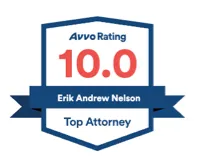In a split second, your life can turn upside down. A heated argument, misplaced anger, or a misunderstanding could escalate into allegations of assault on a family member. Suddenly finding yourself charged with this type of offense is no less than a nightmare. This blog post unravels the complexities of handling first offense assault on a family member charges, detailing potential legal consequences and sharing effective defense strategies that could be your lifeline in navigating the judicial labyrinth. Knowledge is power; arm yourself with it to understand your rights, protections and avenues for defense from start to finish.
First Offense: Assault on a Family Member
Assault on a family member is a serious crime that involves physical harm or the threat of physical harm against a family or household member. This offense can have far-reaching consequences and legal implications. When someone is charged with assault on a family member for the first time, it can be an overwhelming and distressing experience. Understanding the details of this offense is crucial to navigate through the legal process successfully.
In the context of assault on a family member, the term “family or household member” can encompass various relationships, including spouses, ex-spouses, parents, children, siblings, and individuals who share a child together. It’s important to note that assault charges in these cases typically involve domestic violence incidents.
In most jurisdictions, assault on a family member is classified as a misdemeanor offense if it doesn’t result in serious bodily injury. However, it’s important to consult your local laws and regulations as they may vary from state to state. Generally, the severity of the alleged assault will determine whether it is considered a misdemeanor or felony.
For instance, in Texas, first-time offenses of assault on a family member without causing serious injury are typically charged as Class A misdemeanors. These offenses carry potential penalties such as fines up to $4,000 and incarceration for up to one year. If serious bodily injury is involved or if there are prior convictions for similar offenses, the charges can be elevated to higher-level felonies with more severe penalties.
Navigating through such legal proceedings requires expert guidance from an experienced defense attorney who specializes in domestic violence cases. They will provide personalized advice tailored to your specific situation and build a strong defense strategy that takes into account the unique circumstances of your case.
State Laws and the Role of Prosecution
State laws play a crucial role in defining what constitutes assault on a family member, outlining the necessary elements and penalties for conviction. Understanding these laws is essential for both the accused and their defense attorney to navigate through the legal process effectively.
Prosecutors, who represent the state in criminal cases, play a key role in enforcing these laws. Their primary responsibility is to present evidence and build a case against the accused. They will examine witness statements, medical records, police reports, and any other relevant evidence to establish guilt beyond a reasonable doubt.
It’s important to keep in mind that prosecutors have discretion in deciding how to proceed with a case. They may consider factors such as the severity of the alleged assault, the relationship between the victim and the accused, previous criminal history, and any extenuating circumstances when determining whether to pursue charges and what charges to file.
Prosecutors may also take into account the wishes of the victim regarding pursuing charges or seeking alternative resolutions such as counseling or diversion programs. However, it is ultimately up to the prosecutor to make these decisions based on their assessment of the case.
For example, some states have specific programs like deferred adjudication or pretrial diversion that allow offenders to complete certain requirements (such as anger management classes or community service) in exchange for having the charges dismissed. These alternative resolutions aim to address underlying issues while providing an opportunity for rehabilitation.
Choosing an experienced defense attorney familiar with local laws and familiar with dealing with prosecutors is critical. They can negotiate with prosecutors on your behalf, ensure your rights are protected throughout the legal proceedings, and provide strong legal representation tailored to achieve the best possible outcome for your case.
Potential Penalties for Convicted Offenders
When it comes to first offense assault on a family member, the legal consequences can vary depending on the jurisdiction and specific circumstances of the case. However, it’s important to understand that even as a first-time offender, serious penalties can be imposed if convicted. These penalties can have a significant impact on various aspects of your life.
In many jurisdictions, first offense assault on a family member is considered a misdemeanor, but that doesn’t mean the penalties are lenient. Misdemeanor assault charges can still result in fines, probation, mandatory anger management classes, community service, and even potential jail time. The severity of the penalties may depend on factors such as the degree of physical harm caused, any use of weapons, or prior criminal history.
For example, let’s say you engaged in a heated argument with a family member that escalated into a physical altercation resulting in minor injuries. As a first-time offender, you may face charges of misdemeanor assault. In this scenario, you might be ordered to pay fines ranging from hundreds to thousands of dollars. You could also receive probation for a specified period and be required to attend anger management classes to address any underlying issues contributing to the altercation.
However, it’s crucial to note that the potential penalties and consequences can escalate significantly if aggravating factors are present. Aggravating factors may include causing severe bodily harm or using a weapon during the assault. In such cases, the offense can be elevated to a felony charge, leading to harsher penalties such as substantial fines, longer probation periods or incarceration in state prison.
With an understanding of the potential penalties for convicted offenders in cases of first offense assault on a family member, let’s delve into the impact these legal repercussions can have on both family and legal relations.
Impact on Family and Legal Relations
The consequences of being convicted for assault on a family member extend far beyond the courtroom. It can deeply impact your family relationships and legal standing, making it essential to consider how a conviction can affect various aspects of your life.
Imagine being convicted of assaulting a family member. The strain and emotional toll this could take on your once-close relationship can be significant. The incident may not only fracture the trust between you and your loved ones, but it could also result in strained familial dynamics that may be difficult to repair.
In addition to family relationships, a conviction for assault on a family member can have implications for child custody arrangements in cases where there are children involved. Family courts prioritize the safety and well-being of children, and a criminal conviction may influence custody decisions, potentially limiting or altering your visitation rights or even resulting in supervised visits.
Furthermore, an assault conviction can have long-term consequences for future employment prospects and professional licenses. Employers may hesitate to hire someone with a violent criminal record, particularly if the position involves working with vulnerable populations or handling sensitive information. Professional licensing boards may also take disciplinary action or revoke licenses based on a criminal conviction.
Understanding the potential impact on family and legal relations highlights the importance of seeking appropriate legal defense strategies when facing charges of assault on a family member.
Legal Defense Strategies
When facing a first offense charge of assault on a family member, it’s crucial to employ effective legal defense strategies to protect your rights and secure the best possible outcome. While each case is unique and requires tailored approaches, there are some common defense strategies that can be employed.
One such strategy is challenging the evidence presented by the prosecution. This involves carefully reviewing the facts and circumstances surrounding the incident, looking for inconsistencies or weaknesses in the evidence against you. For example, if the police report contains conflicting statements or lacks vital information, it can be used to cast doubt on the credibility of the prosecution’s case.
Another defense strategy is asserting self-defense or defense of others. If you can demonstrate that your actions were taken in response to a genuine threat to yourself or someone else’s safety, it can mitigate or even negate the charges against you. Gathering any available evidence, such as witness testimonies or documentation of prior incidents, can strengthen this defense.
Mistaken identity is yet another potential defense strategy. In some cases, individuals might be wrongly identified as the perpetrator due to confusion or miscommunication. If there are doubts about your involvement in the alleged assault, presenting alibi witnesses or providing evidence of your whereabouts during the time of the incident can help establish a reasonable doubt.
Additionally, mental health issues may play a role in your defense strategy. If you were experiencing a temporary mental state that impaired your ability to understand your actions at the time of the incident, it could potentially impact your culpability. Expert testimony from psychologists or psychiatrists can lend credence to this defense and influence the court’s decision.
It is important to note that these defense strategies should be approached under the guidance and expertise of an experienced criminal defense attorney who specializes in assault cases involving family members. They will assess your case individually and determine which strategies are most suitable for your specific circumstances.
The Importance of Legal representation
When facing charges related to assault on a family member, securing competent legal representation is essential for several reasons. First and foremost, an experienced attorney will possess a deep understanding of the laws and legal procedures surrounding such offenses. They will navigate the complexities of your case with expertise, ensuring that your rights are protected throughout the process.
Consider an experienced attorney as your guide through a treacherous forest. They know the terrain, potential pitfalls, and how to navigate tricky paths. Without their guidance, you may find yourself lost or facing unnecessary hardships.
A skilled defense attorney will also have access to resources and connections that can strengthen your defense. They can consult expert witnesses who can provide valuable insights or testify on your behalf. Moreover, they have experience with negotiation tactics and plea agreements, and can seek reduced charges or alternative sentencing options if appropriate.
Importantly, having legal representation sends a powerful message to the prosecution and the court – that you are taking your case seriously and are committed to mounting an effective defense. This dedication can help establish reasonable doubt or mitigating circumstances that sway the outcome in your favor.
Imagine being accused of assaulting a family member without any previous criminal record. Without proper legal representation, you might be tempted to plead guilty out of fear or lack of knowledge about available defenses. However, an astute attorney will thoroughly investigate the facts, challenge the evidence, and explore all possible avenues for acquittal or reduced charges.
Navigating Court Proceedings
When facing charges for a first offense assault on a family member, navigating the court proceedings can be an overwhelming and complex process. Understanding how the legal system operates in these cases is crucial for mounting a strong defense. Let’s take a closer look at the typical steps involved in navigating court proceedings:
- Arraignment: This initial step is where the defendant appears before the court to enter a plea of guilty, not guilty, or no contest. It’s essential to consult with a defense attorney before this stage to understand your rights and determine the best course of action.
- Bail or Bond Hearing: If you have been arrested, there will typically be a bail or bond hearing to determine whether you should be held in custody until trial or granted release on bail. An experienced defense attorney can help argue for reasonable bail conditions or seek alternatives to incarceration.
- Discovery Process: The discovery phase allows both the prosecution and defense to exchange evidence and information related to the case. Your attorney will review the evidence against you, identify any weaknesses, and build a solid defense strategy.
- Pre-Trial Motions: Your defense attorney may file pre-trial motions seeking to suppress certain evidence, dismiss the case on legal grounds, or request a change of venue. These motions are critical in shaping the outcome of your case and challenging the prosecution’s evidence.
- Negotiations and Plea Bargaining: In some cases, it may be possible to negotiate with the prosecution for reduced charges or lesser penalties through plea bargaining. Your attorney will assess the strengths and weaknesses of your case and advise you on whether accepting a plea deal is in your best interest.
- Trial: If no plea agreement is reached or if you choose to proceed to trial, your defense attorney will prepare your case for trial by gathering evidence, interviewing witnesses, and developing arguments that challenge the prosecution’s case. During the trial, your attorney will present your defense and cross-examine witnesses. The jury or judge will then evaluate the evidence presented and determine your guilt or innocence.
It is crucial to have a qualified defense attorney by your side throughout the court proceedings. They will understand the intricacies of first offense assault cases, help protect your rights, and work diligently to achieve the best possible outcome for you.
Hypothetical Cases and Outcomes
To gain a better understanding of the potential outcomes in first offense assault on a family member cases, let’s consider two hypothetical scenarios:
In the first scenario, let’s say John is charged with assaulting his brother during an argument. John has no prior criminal record, and there were no severe injuries involved. With the assistance of a skilled defense attorney, John’s legal team can argue for mitigating circumstances that could result in a reduced charge or alternative sentencing such as anger management classes or community service. With strong representation and a well-prepared defense strategy, John may be able to avoid jail time and instead receive probation or other non-incarceration penalties.
In another hypothetical case, Sarah is facing assault charges against her spouse following an altercation where both parties were physically aggressive towards each other. A capable defense attorney would help Sarah establish a self-defense claim by presenting evidence and witness testimonies that support her actions being in response to immediate physical harm or threats. If successfully argued, Sarah may be acquitted of the charges based on self-defense grounds.
Every case is unique, and outcomes depend on various factors such as the specific circumstances of the incident, evidence available, witnesses’ statements, applicable laws, and the expertise of the defense team. It is essential to consult with an experienced defense attorney who can assess your case’s strengths and weaknesses and craft an effective defense strategy tailored to your situation.







